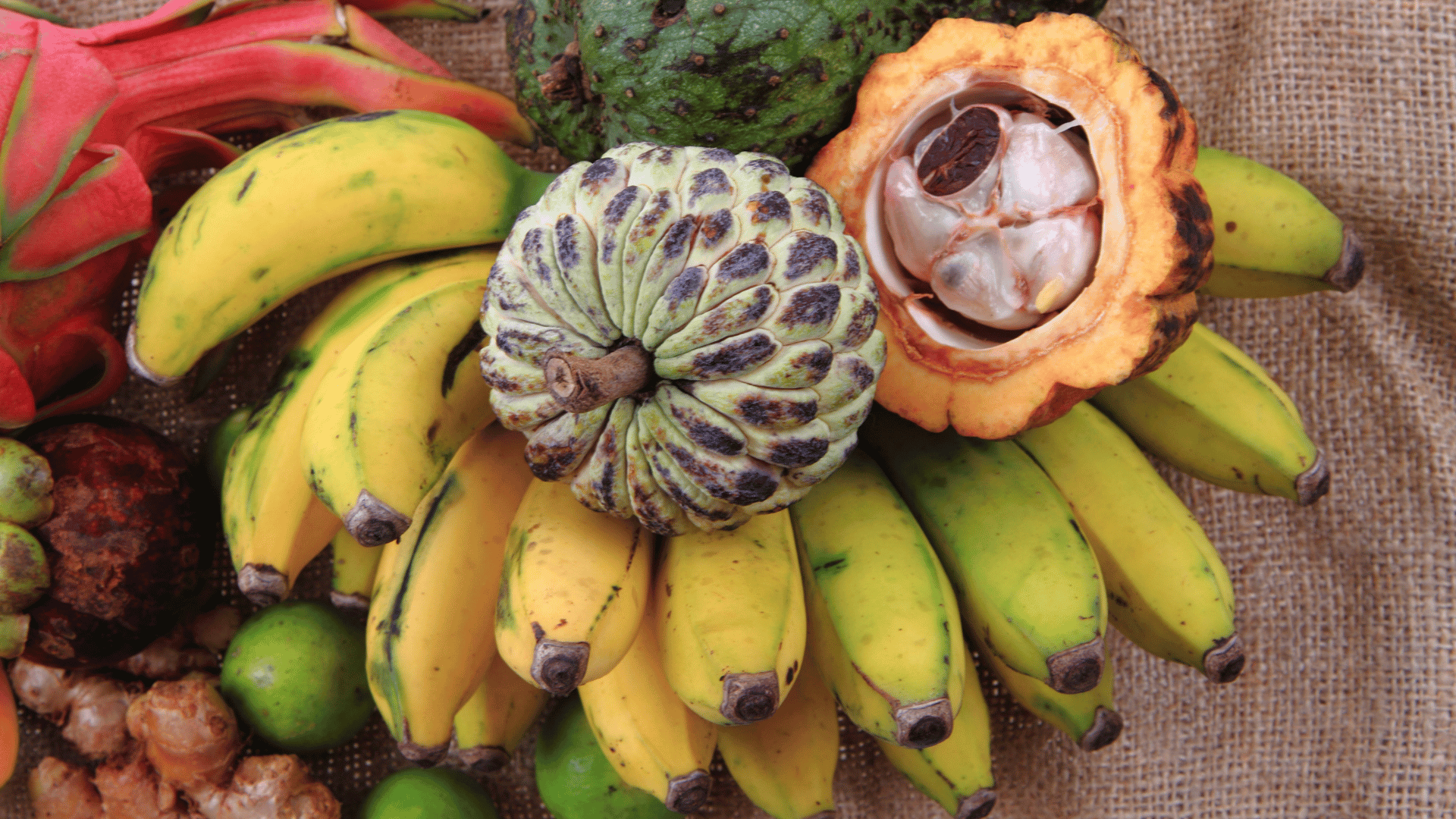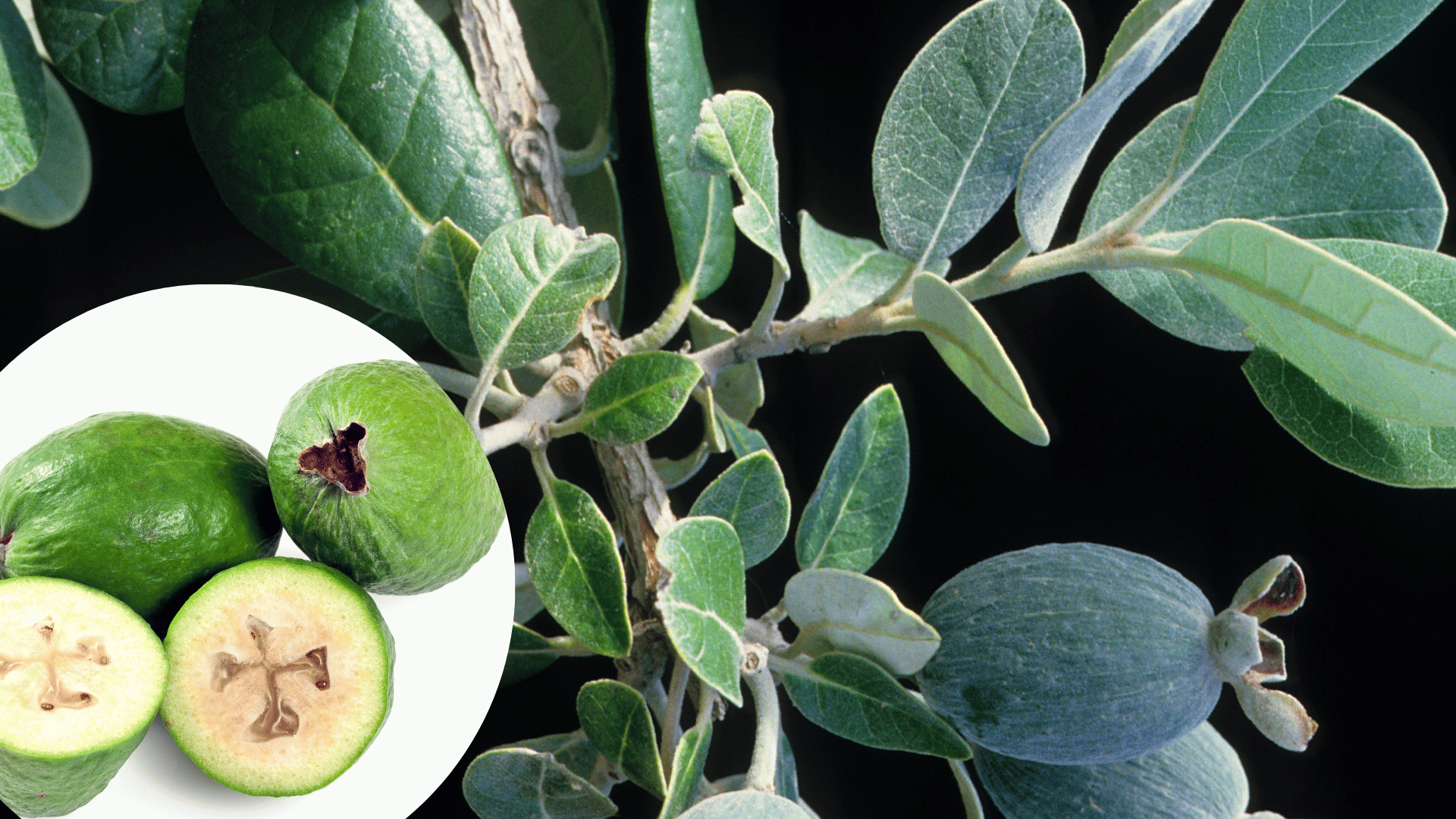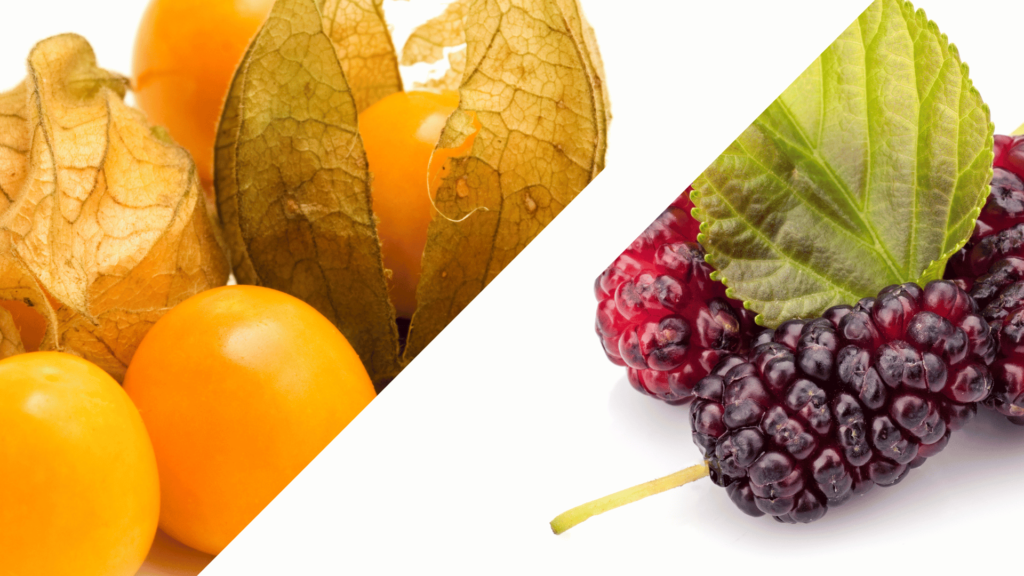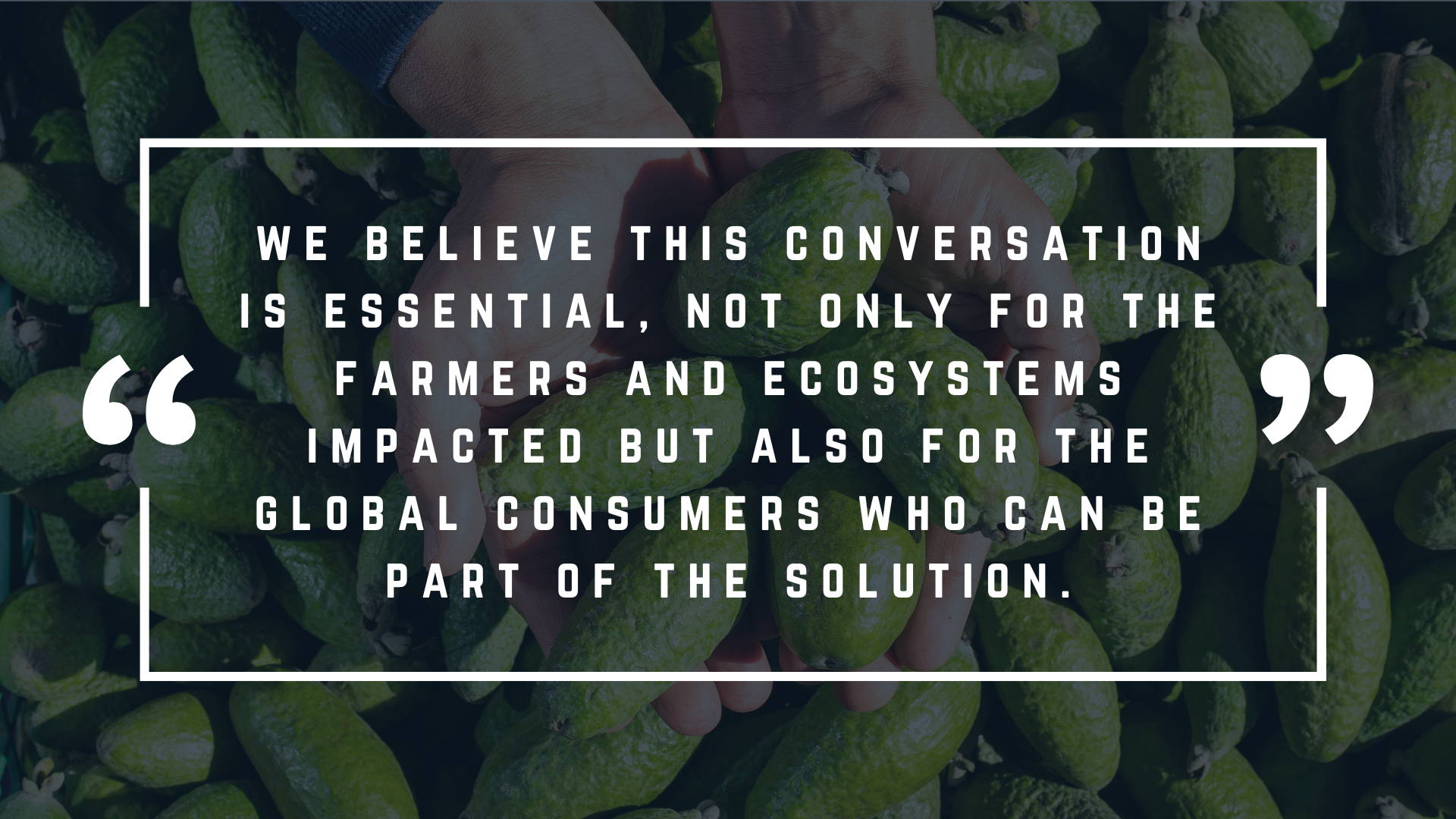The shift in Colombia’s agricultural landscape, from nurturing endemic fruits to prioritizing internationally popular ones like avocados and bananas, is more than an economic evolution—it’s a crossroads for the country’s biodiversity and cultural identity. At Pacific Soul, we believe this conversation is essential, not only for the farmers and ecosystems impacted but also for the global consumers who can be part of the solution.
Why This Matters?

Colombia is home to some of the most diverse ecosystems in the world. Endemic fruits like feijoa, uchuva, carambolo, guanábana, guáimaro, and arazá are not just unique—they are crucial to the health of these ecosystems. They support local wildlife, contribute to soil health, and represent the rich cultural tapestry of the regions where they’re grown. Yet, the pressure to grow internationally demanded crops has led to a decline in the cultivation of these native species.
Farmers are often caught in a difficult position. Non-native crops like avocados promise higher profits in the short term, but they often come at the cost of soil depletion, water overuse, and monoculture farming practices. Supporting native fruit cultivation allows for more sustainable agroforestry systems, which benefit both the environment and local communities.
The Case for Feijoa: A Hidden Treasure
Take feijoa (Acca sellowiana), for example. This aromatic fruit, rich in vitamin C and fiber, thrives in Colombia’s unique climate but remains relatively unknown internationally. Beyond its distinctive flavor, feijoa contains antioxidants and bioactive compounds that may support brain function and digestive health (learn more about feijoa here). However, its cultivation is declining as farmers shift to crops with higher export value.


Uchuva and Mora: Nature’s Superfoods
The golden uchuva (Physalis peruviana) and the deep purple mora de Castilla (Rubus glaucus) are two native fruits with incredible nutritional potential. Uchuva is a powerhouse of vitamin A, vitamin C, and polyphenols that contribute to overall wellness. Mora, on the other hand, is packed with anthocyanins and fiber, offering support for cardiovascular and immune health. health-conscious choices.
These fruits have a story to tell, one of health benefits that align with modern wellness trends while honoring Colombia’s agricultural heritage. By prioritizing these ingredients, we want to showcase the unique advantages of endemic fruits in a global market increasingly driven by health-conscious choices.

Our Role in the Solution
Our journey began with a commitment to bringing the world the rich flavors and unmatched nutrition of Colombia’s native fruits. Behind every product we make is a belief: preserving biodiversity and promoting sustainable agriculture is not just good for the planet—it’s vital for the soul.
When we talk about feijoa, uchuva, guanabana or mora, we’re not just selling fruits; we’re sharing a story of resilience. These fruits represent the knowledge of small farmers who, for generations, have cultivated biodiversity, supporting ecosystems and communities alike. However, as global markets demand non-native crops, this legacy is at risk.
At Pacific Soul, we are committed to being part of the solution by:
- Creating Demand: By incorporating endemic fruits like feijoa, uchuva, and mora (more to come!) into our product lines, we aim to drive market interest and make these fruits more economically viable for farmers.
- Educating Consumers: Through our storytelling and product transparency, we want consumers to understand the benefits of choosing products made with native superfruits.
- Collaborating Locally: Partnering with Colombian farmers allows us to ensure fair prices, sustainable practices, and the preservation of traditional farming knowledge.
- Promoting Regenerative Agriculture: Encouraging diverse farming practices helps protect soil health and biodiversity while fostering long-term agricultural sustainability.

A Call to Action
We believe in the transformative power of informed choices. By supporting products that celebrate endemic fruits, consumers can help preserve biodiversity, empower small farmers, and enjoy the health benefits of some of nature’s most extraordinary offerings.
Together, we can redefine what it means to “eat well.” Join us in making a difference. Let’s eat well, do good, and feel great.
